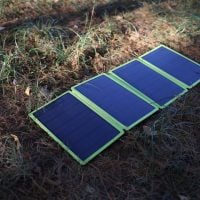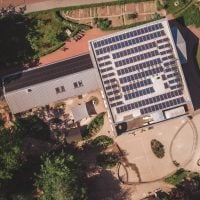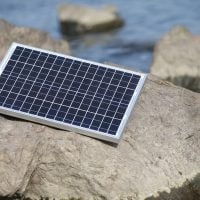Deadline: 14-May-24
Do you have an idea that could transform learning for students? Siegel Family Endowment and the Walton Family Foundation invites changemakers to propose infrastructure solutions that deliver and connect digital, in-school, and community-based learning experiences.
The Learning Landscapes Challenge is a $2.2 million competition to design and build future-ready K-12 education environments. The Learning Landscapes Challenge will help changemakers integrate social, digital, and physical infrastructure to bridge the learning of today with the learning of tomorrow. The multiphase challenge will provide entrants with funding, expertise, and access to a collaborative community of like-minded partners that can help them scale their solutions.
From teachers and community organizations to students and families, forward-thinking educational changemakers across the United States are experimenting with highly effective models of personalized and experiential learning. With the right structures and tools to expand their reach, these learning experiences can reduce achievement gaps and drive long-term success for even more students.
The Learning Landscapes Challenge will unfold across three phases designed to identify and support infrastructural concepts and entrants with the potential to achieve tangible, transformative impact — while laying the foundation to scale innovative learning beyond a single community.
Challenge Phases
- Phase 1: Concept development
- Phase 1 of the Learning Landscapes Challenge invites all eligible entrants to submit concepts for innovative infrastructure solutions.
- Submissions should articulate the proposed infrastructure solution, the intended learning experience, evidence base, partnership plans, and multidimensional needs to scale impact.
- Entrants will have access to a virtual information session and a collection of curated resources as they develop their concepts.
- Phase 1 of the Learning Landscapes Challenge invites all eligible entrants to submit concepts for innovative infrastructure solutions.
- Phase 2: Accelerator
- Phase 1 winners will be exclusively invited to participate in Phase 2, a 14-week virtual accelerator, to further refine concepts and build the partnerships needed for implementation. At the end of Phase 2, accelerator teams will submit detailed proposals for their solutions.
- As a part of the virtual accelerator, Phase 2 teams will be expected to validate the core elements or assumptions underpinning their concepts, refine their proposed solutions, and make tangible progress in establishing additional partnerships.
- Phase 2 teams will receive mentorship and technical support for developing solution concepts into detailed proposals, developing action plans, and cultivating multisector partnerships.
- Phase 1 winners will be exclusively invited to participate in Phase 2, a 14-week virtual accelerator, to further refine concepts and build the partnerships needed for implementation. At the end of Phase 2, accelerator teams will submit detailed proposals for their solutions.
- Phase 3: Incubator
- Phase 2 winners will be exclusively invited to enter the Phase 3 incubator to receive tailored support and mentorship focusing on concept implementation and sustainability. At the end of Phase 3, incubator teams will submit prototypes and implementation plans.
- Phase 3 teams will receive tailored technical support as they refine and scale their funding and delivery plans.
- The incubator, which will kick off with an in-person boot camp, will focus on developing sustainable funding plans through private and public streams.
- Phase 2 winners will be exclusively invited to enter the Phase 3 incubator to receive tailored support and mentorship focusing on concept implementation and sustainability. At the end of Phase 3, incubator teams will submit prototypes and implementation plans.
Funding Information
- The Learning Landscapes Challenge will award up to $2.2 million across three phases.
- Phase 1 is open to all eligible entrants. Phase 2 is exclusively open to Phase 1 winners, and Phase 3 is exclusively open to Phase 2 winners.
- Phase 1: Up to 40 winners will each receive $5,000 and an exclusive invitation to the Phase 2 accelerator.
- Phase 2: Up to five winners will each receive $200,000 and an exclusive invitation to the Phase 3 incubator.
- Phase 3: Up to two grand – prize winners will receive $500,000 each.
Eligibility Criteria
- Any party entering the Challenge (whether an individual, group of individuals, single entity, or group of entities) must designate a single individual or entity as the “lead” (for entities, a point of contact affiliated with said entity must also be specified). All Entrant team members’ names and affiliations must be clearly identified in the Entrant’s submission for the Entrant to be eligible. Failure to follow this procedure as outlined on the Challenge Website will disqualify the Entrant’s submission. To be eligible to win a monetary prize in the Challenge, the lead individual or entity must maintain a primary place of operations in the United States.
- All Entrant team members must be 18 or older to participate. Entrants are not eligible to win a monetary prize in the Challenge if any named team member is an employee, owner, director, trustee, officer or contractor of SFE, WFF, the Fiscal Agent, or the Administrator, is a Challenge reviewer or judge, is supporting the development or execution of the Challenge in any capacity, or is an immediate family member (spouse, child, step-child, sibling, step-sibling, parent, step-parent) or person living in the same household (whether or not related) of any individual described in this paragraph. Note: The members of an individual’s household include any other person who shares the same residence as such individual for at least three months out of the year.
- Current or past recipients of grant or other non-contractual funding from SFE, WFF, Fiscal Agent, and/or the Administrator are eligible to win a monetary prize in the Challenge, provided they meet all other eligibility requirements and comply with all Official Rules.
- Phase 1 is open to any individual, group of individuals, single entity, or group of entities that meet the above eligibility criteria and any other criteria set forth on the Challenge Website; however, Phases 2 and 3 will require the lead Entrant to be a nonprofit organization with 501(c)(3) tax exempt status as a public charity (excluding 509(a)(3) Type IIII supporting organizations that are not functionally integrated). Prior to receiving the prize money in Phase 2, any Phase 1 winner that does not already meet this requirement will be encouraged and receive technical support to seek out an eligible public charity with which to establish a partnership.
- Eligibility to participate in any Challenge phase after Phase 1 is restricted to designated winners of the preceding Challenge phase, at the sole discretion of SFE and WFF.
- In order to be eligible to receive a prize for any Phase, Entrants must have complied with all requirements to participate in relevant activities for that Phase. For Phase 2, this will include participation in a virtual accelerator with at least one representative from each Phase 1 winner attending weekly virtual technical assistance sessions. For Phase 3, this will include participation in two in-person events: a “boot camp” in Fall 2024 to start the incubator and a Demo Day in Spring/Summer 2025 to present final concepts to judges, partners, and the public. These dates and format are preliminary and may be changed. Additionally, if selected as a Phase 1 winner, winning Entrants must agree to participate fully in Phase 2 to be eligible to receive the Phase 1 prize award. Likewise, if selected as a Phase 2 winner, winning Entrants must agree to participate fully in Phase 3 to be eligible to receive the Phase 2 prize award.
Evaluation Criteria
- Phase 1
- Ingenuity of infrastructure solution: Extent to which the submission creatively and cohesively incorporates multiple dimensions of infrastructure (physical, digital, social) to address the needs of the entrant’s target student population and community.
- Scale of learning need: Extent to which the submission identifies a significant learning need for a community that can be addressed through infrastructure investment, considers how this need may evolve in the future, and articulates how the need is generalizable in other contexts.
- Impact: Extent to which the submission describes a theory of change — including an integrated learning experience and infrastructure plan — grounded in learning science, mapping to students’ future success, and proposing reliable metrics to track improved student learning outcomes, especially for historically marginalized populations.
- Community engagement: Extent to which the submission demonstrates the entrant team’s authentic local presence and trust, signaled by a knowledge of local needs, barriers, community assets, and partnerships needed for a solution in their community.
- Feasibility of implementation: Extent to which the submission articulates an achievable near-term delivery plan and a logical pathway for acquiring the necessary partnerships, capacity, and resources to execute the plan.
- Phase 2
- Ingenuity of infrastructure solution: Extent to which the submission creatively and cohesively integrates holistic infrastructure needs and specifically articulates the ways in which the approach is new or novel.
- Scale of learning need: Extent to which the submission has conducted user research to refine and validate a deep understanding of the learning need in the specific target community.
- Impact: Extent to which the submission provides a comprehensive logic model including intended program inputs, activities, outputs, and outcomes and includes a measurement plan for specific leading indicators during prototyping.
- Community engagement: Extent to which the submission demonstrates commitment from all key partners; defines clear and equitable partner roles, responsibilities, and decision-making authority; and articulates plans for community input and feedback through the prototyping process.
- Feasibility of implementation: Extent to which the submission includes a refined implementation plan and identifies the largest programmatic assumptions and presents a feasible plan to validate these through a prototyping process.
- Phase 3
- Ingenuity of infrastructure solution: Extent to which the infrastructure solution has been refined based on the learnings from prototyping and advances the broader field by validating a new or novel approach.
- Scale of learning need: Extent to which the submission identifies the scale of need in other contexts and articulates a specific pathway to scale the solution beyond the community of initial implementation.
- Impact: Extent to which the submission provides early evidence of potential impact through the measurement of leading indicators, includes a plan for rigorous outcome measurement, thoughtfully acknowledges program elements that were unsuccessful, and identifies future changes and iterations based on these learnings.
- Community engagement: Extent to which the submission demonstrates community buy-in and ownership of the solution and articulates long-term plans for ongoing community engagement and feedback.
- Feasibility of implementation: Extent to which the submission presents a feasible plan for implementation with evidence from prototyping and includes specific detail on funding, governance, and long-term sustainability.
For more information, visit Walton Family Foundation.









































